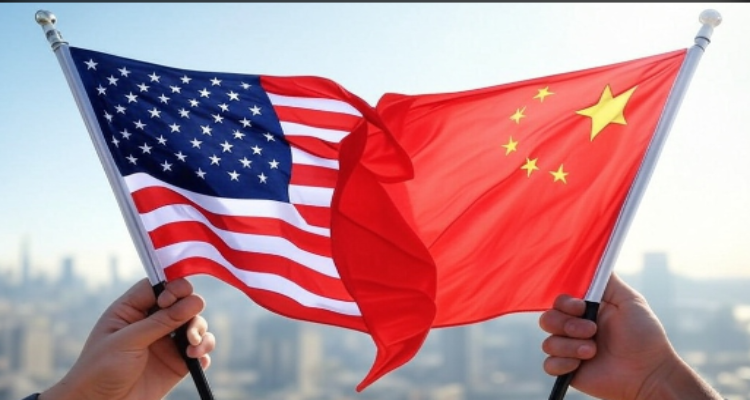Tech Stocks Rally as U.S.-China Ease Tariff Tensions

Tech stocks soared after the U.S. and China agreed to a 90-day pause on steep reciprocal tariffs, fueling optimism across global markets. This temporary trade truce signals a potential shift in U.S.-China economic relations.
Tech Stocks Surge as U.S.-China Pause Trade Tariffs
A 90-day tariff pause between the U.S. and China sparks Wall Street optimism, lifting tech shares across the board.
In a move that sent ripples through global markets, the United States and China agreed to temporarily ease off their punishing tariff war, triggering an early rally in tech stocks. The agreement, reached during tense negotiations in Geneva, marks a rare moment of détente in the often-combative relationship between the world’s two largest economies.
Under the new arrangement, Washington will reduce its reciprocal tariff on Chinese imports from a steep 145% to 30%, while Beijing will lower its 125% tariff on American goods down to 10%. Though the truce is set for just 90 days, it was enough to fuel strong pre-market gains in both Chinese and American tech stocks.
Tech Titans Lead the Rally
Nasdaq futures jumped nearly 3.8% in response to the news, signaling investor confidence that the tariff freeze could bring short-term relief to a sector often caught in geopolitical crossfire. Shares of Chinese online retailers Temu and Alibaba surged nearly 9% in pre-market trading, highlighting optimism about cross-border commerce.
Major U.S. tech players with deep manufacturing ties in China, including Apple, Tesla, Nvidia, AMD, Amazon, and Meta, all saw share price spikes between 5% and 6% before markets opened. Analysts say the reaction underscores just how sensitive these companies—and their investors—are to changes in trade policy.
“This isn’t just a win for tech,” said Amanda Lee, a senior global markets strategist at CapitalPoint Advisors. “It’s a glimmer of predictability in a very volatile trade landscape.”
A Fragile Truce with Wider Implications
Despite the celebratory tone on Wall Street, experts caution that the truce is only temporary and does not reverse the broader decoupling trends in U.S.-China trade. One glaring omission from the deal is the U.S. government’s recent decision to revoke the “de minimis” rule, which had previously exempted imports under $800 from tariffs. That exemption had been a lifeline for e-commerce companies importing low-value goods.
“The pause is strategic more than symbolic,” said Dr. Rachel Koh, a trade economist at Georgetown University. “Both nations are signaling a willingness to step back from escalation without giving up too much ground.”
Koh added that the timing could be politically motivated, especially as both countries face internal economic pressures and look to stabilize ahead of major domestic events.
Semiconductor Sector Gains Momentum
Semiconductor and hardware sectors, often viewed as bellwethers for broader tech performance, were among the biggest gainers. With chipmakers like Nvidia and AMD deeply reliant on Chinese production pipelines, any relief from tariffs translates directly into improved profit margins.
“These companies have been under significant cost pressure,” said Mark Lenz, a technology analyst at Brightwave Securities. “A temporary reprieve on tariffs, even for a quarter, can provide much-needed breathing room and improve earnings outlooks.”
Investors Remain Cautiously Optimistic
While the market reaction was decidedly bullish, not everyone is convinced that this détente will hold. Previous agreements between the two nations have unraveled quickly, and the underlying tensions—intellectual property rights, market access, national security concerns—remain unresolved.
Still, the tariff freeze offers a critical window for companies to rebalance their supply chains, rework pricing strategies, and, perhaps most importantly, rebuild investor confidence.
“For now, the markets are embracing the good news,” said Lee. “But they’ll be watching very closely for what happens on day 91.”
A Measured Win Amid Global Uncertainty
In an era marked by economic headwinds and geopolitical uncertainty, even a brief pause in the U.S.-China tariff war feels like a market-moving event. The surge in tech stocks illustrates how intertwined global trade is with corporate profitability and investor sentiment. While this truce is no silver bullet, it opens the door to renewed dialogue—something Wall Street, and Main Street alike, could use more of.
Disclaimer:
This article is for informational purposes only and does not constitute financial or investment advice. Stock market investments are subject to risk, and past performance is not indicative of future results.
source : tech crunch










